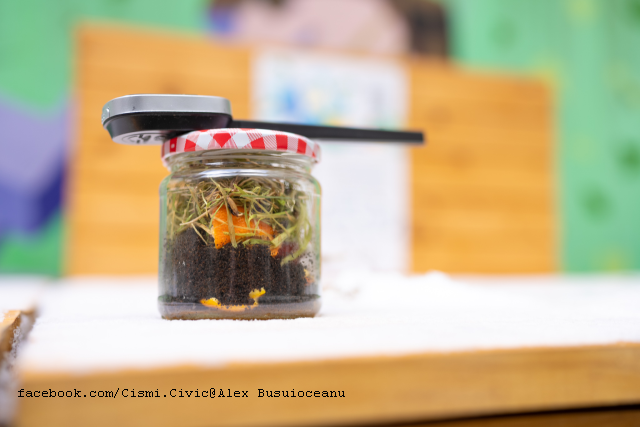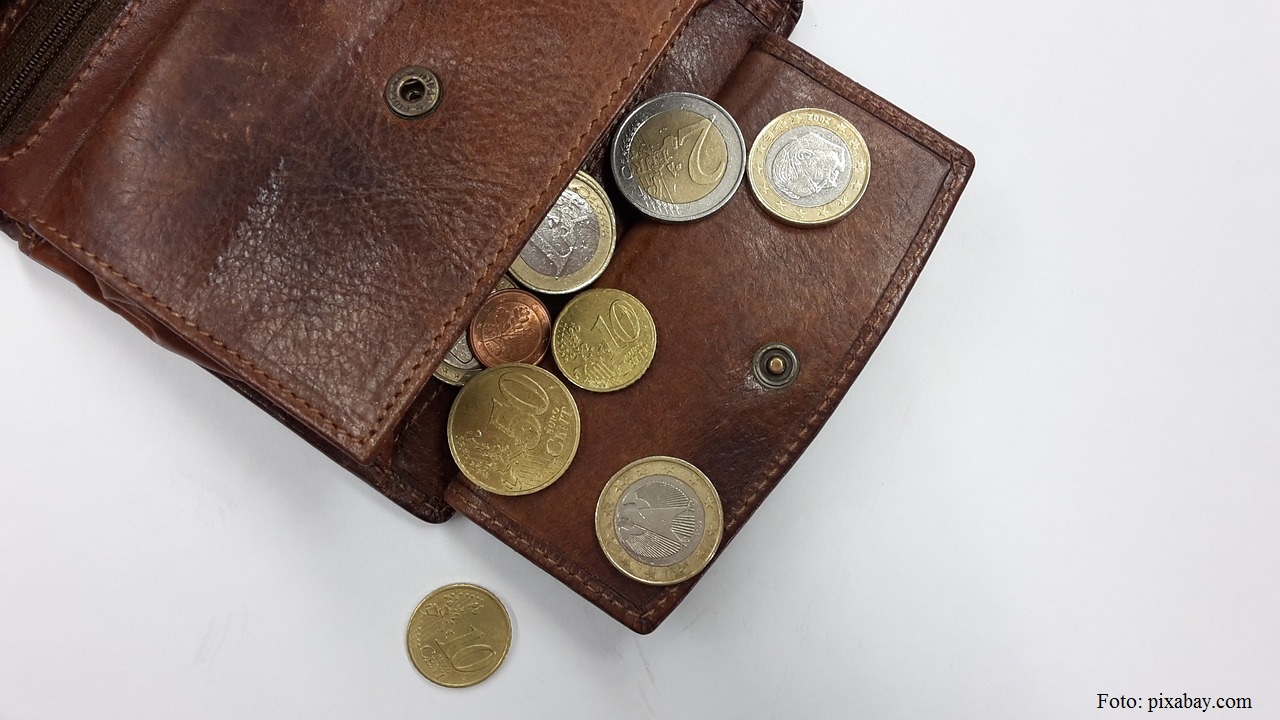Composting in the City
Cișmigiu Civic Initiative Group is mobilizing the neighbors of Blocul liric, a block of flats adjacent to the famous Bucharest park

Christine Leșcu, 24.01.2024, 16:49
Civic spirit in the city is not only manifested in the sense of expressing dissatisfaction or reporting to the authorities when things are not going well. For example, the Cișmigiu Civic Initiative Group is mobilizing the neighbors of Blocul liric, a block of flats adjacent to the famous Bucharest park, to form a community by composting. As a result, a composting station consisting of three special boxes where food waste is collected, left to mature, and then turned into fertilizer was recently placed in the inner courtyard of the block. Alex Oprița, the coordinator of the civic initiative group in the block, believes that, by doing work together, neighbors can socialize and then relax together. Here is Alex Oprita.
“As early as 2017, we started taking care of the blocks courtyard. Its the one in the inner courtyard and the one in front. We also brought plants, and tried to think of it in a way that is as resilient as possible to climate change, to require minimal watering and a minimal level of intervention. Probably a good part of the compost will still go to public spaces, neighborhood gardens, and the other part will go to those who compost and want to take home part of the compost for houseplants, it being a natural fertilizer very beneficial for plants.”
After the placement of the crates for collection and ripening, the composting lesson followed, held by Gabriela Iordan, project coordinator of the Compost Academy and the Mărțișor Community Orchard.
“Composting, that is, the selective collection of vegetable remains from the rest of the waste that we generate at home from our daily consumption, makes each fraction much cleaner and easier to reach the area where it can be transformed again into materials for the process of production. Regarding the separate collection of plant residue in the urban area, where we do community composting, we encourage a very simple recipe. We separate the skins from vegetables, fruits, spines, coffee grounds, tea residue, or house flowers, which we shred well at least once a week. Then we bring them to these bins where the community takes their vegetable scraps. It is an environmentally friendly process, because we no longer generate waste in landfills that are non-compliant and should be closed anyway. And, secondly, plant debris turns into a natural fertilizer that we use in both planters and block gardens as a vitamin and mineral supplement for plants and trees to support life.”
Currently, seven composting stations similar to the ones near the Cișmigiu park operate in other communities in Bucharest blocks of flats. But the phenomenon is somewhat more extensive, including neighborhoods with family houses. Here is Gabriela Iordan.
“There are a lot more compost bins of this type out there right now, and obviously people are starting to get various containers for individual composting at home, especially where they have a patch of land and can put there these vegetable scraps to be turned into compost in a few months. But really, for community composting in a block of flats in particular, it is more difficult, and then the community composting stations are dedicated to some micro-communities from the block, but not only from that block, but also from the area, people who want to compost in the area and do not yet have such a station. We really wanted to expand the network. In the Compost Academy project we will even offer a prize for a community that wants to open a station. The more the better. People who compost start to ask themselves certain questions, to reduce food waste. It is very important to understand that composting does not solve food waste. We need to sort out food waste before composting, meaning from our shopping list and the amount we actually cook and consume. Community composting refers, as I said, only to the remains of vegetables and fruits, coffee grounds and, at most, crushed vegetable and fruit peels.”
Alex Oprița, from the Cișmigiu Civic Initiative Group, tells us how easy or difficult it is to coagulate a community around projects like this.
“Its not simple. I would like to say that it is simple, but it happens that way because we actually live in a society where we are not encouraged to socialize with our neighbors, with the people around us. Everything happens so fast that we realize we dont find enough time to meet even our close friends or family. And thats exactly why its not easy to bring people together. Here, in the Lyric Block of Flats, it happened over time. We had a series of community events, from gardening, ornithology, various activities that happened around the neighborhood, which we have been doing for 5 years now. A key point, I think, was that, since the beginning, we have had a block communication channel, we made a Facebook group, and gradually, gradually the neighbors appeared. There we started interacting with each other, getting to know our neighbors face to face, greeting each other, and exchanging words. And the workshops organized for the community are a very good opportunity to bring the neighbors together in another way, not only in the work-related one.”
Currently, there are 10 neighbors who collect scraps for compost at Blocul Liric, the surprise being the fact that the tenants of the neighboring blocks, hearing about the composting station, started coming here with their own food scraps.






























